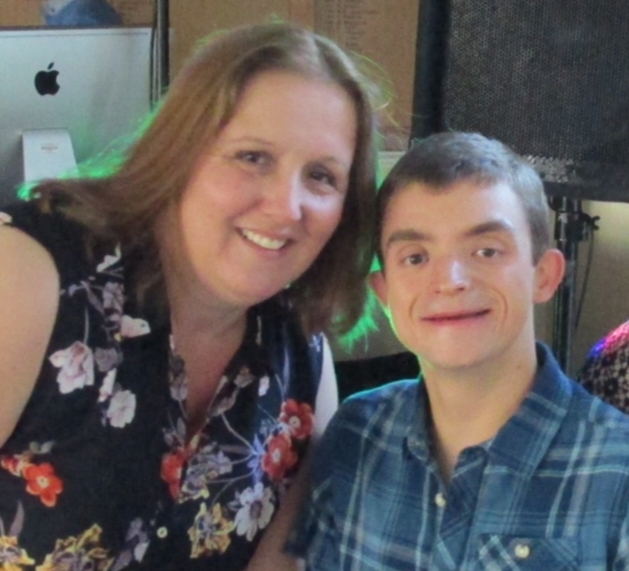Mum and carer Helen writes about what it’s like to advocate for her son James, and all the different hats she has to wear to get him the support he deserves – and how it’s never a bad thing to ask for help.
As parents we assume many roles. One of those is that we advocate for our children. Generally, by the time our child reaches their teens, with guidance and support as needed, they can do a pretty good job of advocating for themselves. We may not always agree with their choices but it’s a natural process and as many parents will tell you, interference from their parents is often frowned upon.

When we have a child/young adult with additional needs our role as advocate continues into adulthood. They may never have capacity to make day to day decisions for themselves. They may have some understanding in which case they may be able to be involved in the decision-making process to some degree. In the case of my son James, he doesn’t. James will never be able to express his opinions or speak for himself. He will always need someone to do this for him, someone to keep him safe and to ensure he is accessing the support he needs and is entitled to. It’s a role I am happy to fulfil all the time I am able to do so.
As an advocate, be it for your child or someone else, you do need to have a thorough knowledge of the person you are representing in order that you can understand their needs and can represent their interests. It is about their interests and not yours. You need to have the ability to seek out the required information to enable you to make the best decisions of their behalf.
There will be times when you need to respond to situations that have happened. For example, I have found agency staff caring for James asleep on shift, or James has come home from school sore from not having his personal care attended to as required, or James has been injured by another service user at his day service. As a parent it is hard not to allow your emotions to come to the fore as we are fiercely protective of our vulnerable child/young adult who cannot defend themselves. I feel the injustices that happen to James more strongly than if they had happened to me. Of course, on occasions we find we respond in anger, it’s a natural feeling but most often if you have to make a complaint it is to a service, carer or professional that you will have to continue to work with. You will want to maintain a good relationship with them. They absolutely need to know that you are angry and disappointed and that the service they have delivered is not acceptable, but it is not helpful to escalate a situation unnecessarily. You will not always see eye to eye with everyone but in my experience if you approach things in the right way most professionals will see that you are coming from a place of love and that you are only fighting for your child’s rights and that you want the best for them. I have been known to say ‘If this were your child…’
As an advocate you also need to be aware of other potential risks to your child. They are vulnerable in so many ways. We have all seen the horrific stories of abuse on TV. We can’t pretend they don’t happen. We need to be aware of them and be prepared to ask questions and call it out if we have any concerns. I’m not just referring to the physical, sexual or verbal abuse of which we are all aware but also financial, emotional and discriminatory abuse. We don’t like to think it’s possible but there are people in society who will take advantage of those more vulnerable individuals.
As a parent of an adult with additional needs we also often find ourselves as I do, responsible for managing their benefits and finances. I am James’ appointee. I am also an employer as James is in receipt of direct payments and we employ a carer for him. It is yet another responsibility we take on without question.
Parents like myself wear a lot of different hats and at times that can be overwhelming. There is no shame in asking for advice or help when we need it. You don’t have to do it all alone, you can ask family or friends to support you and if you really have no one you feel you can ask then speak to your child’s care manager and hopefully they can support you or point you in the right direction to get the help you need.
– Helen Horn
Check out more blogs from Helen on her website at ourlearningdisabilitiesblog.co.uk
The #SecretLifeOfUs campaign aims to provide families with disabled children an opportunity to have their experiences heard.
It brings to life the realities of the challenges disabled children, young people and their families face in living a life that many other members of society will not have to even consider. It reveals the parts of their lives that most people simply do not see.
Please do get involved with the campaign. Share our blogs and videos. If you are a disabled young person or family member, send us your photos, videos, blogs, and more – you can email us at disabledchildrens.partnership@mencap.org.uk
